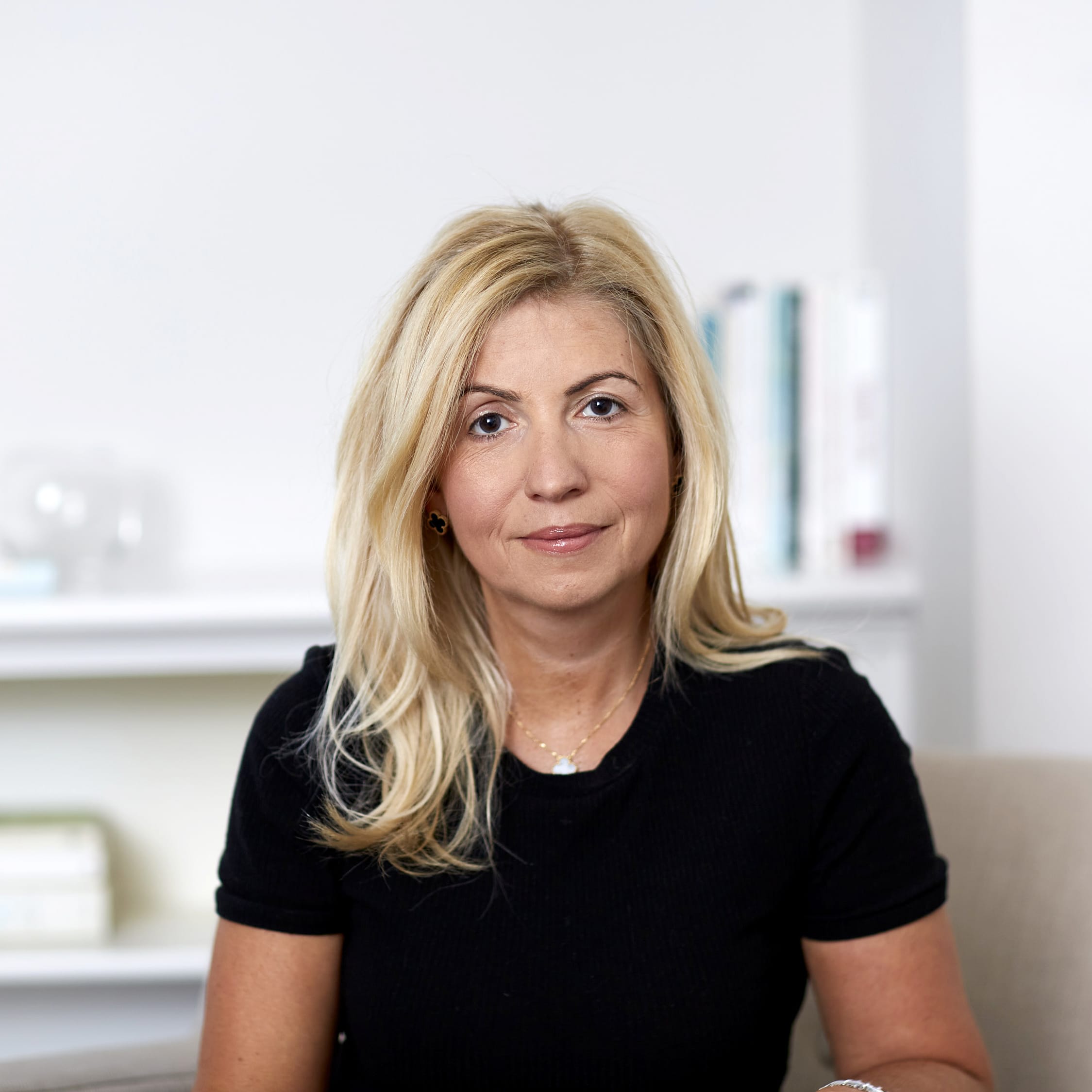Do you find yourself running on adrenaline? Always second-guessing yourself – terrified of getting things “wrong”… Do you worry a lot about doing – or saying – the wrong thing and losing the people you care about?
And to counteract these anxious feelings, do you find yourself seeking reassurance to make sure things are “OK”? Perhaps you’re always checking in with your partner or the people closest to you.
The need for validation and reassurance from time-to-time is normal and healthy, we all have moments when we question ourselves and it takes courage to reach out for support when we need it. That said, constantly needing reassurance is not. When it becomes a coping mechanism for anxiety it can lead to a self-perpetuating cycle that can feel hard to break out of.
Constant Reassurance and Anxiety – What’s the Link?
When we dig a little deeper, we usually find that this need for constant reassurance is driven by anxiety. And when this is the case, it can easily become part of a pattern.
Whilst reassurance may relieve our anxiety in the moment, it’s likely to make it worse longer term.
Every time we seek out reassurance, we teach the brain that we only survived the “threat” because of that behaviour. Thus, the behaviour itself gets reinforced.
In this sense, reassurance can become addictive. We feel anxious, and so we seek out reassurance. Our anxiety dissipates for a while but soon enough, we feel anxious again – and the cycle continues…
Why Do I Need Constant Reassurance in a Relationship?
This vulnerability most often shows up in our closest relationships. The reason for this is that – more often than not – this is also where it began.
Reassurance-seeking is perhaps best understood through the lens of attachment theory. Attachment theory centres around the idea that our earliest bonds (with our caregivers) set the precedent for how we respond to our relationships in later life.
There are four different attachment styles, each of which can be traced back to the kind of connections we had in our earliest relationships:
- Secure
- Avoidant
- Anxious
- Anxious-avoidant
If our parents were available and responsible to us growing up, we’re likely to develop a natural sense of security in our relationships (secure attachment style). If our parents respond consistently to our needs, we learn that people are to be trusted and that we can depend on them.
If, on the other hand, our parents were emotionally unresponsive or, for example, criticised us when we cried or expressed emotions, we may develop an avoidant attachment style. We might become overly self-sufficient and fearful of getting too close, “learning” that people aren’t to be relied upon or trusted.
But if you’re the kind of person who needs a lot of reassurance in your relationships, you likely have an anxious attachment style. A parent may have been unavailable to you growing up, or perhaps they were inconsistent in their parenting style, giving mixed signals – one moment, supportive and reliable, and the next, cold and disengaged.
You might find that you’re completely preoccupied with your relationships. You spend a lot of time thinking about them – and worrying about them. Because the anxiety feels so overwhelming, you seek reassurance to make sure everything’s okay.
New Stressors in 2025 and How They Impact Reassurance-Seeking
-
Economic Uncertainty: Rising cost-of-living concerns or job security worries can amplify feelings of instability, increasing the need for external validation.
-
Social Media Influences: Endless news feeds and comparison traps can heighten anxiety and self-doubt, driving you to seek reassurance more often.
-
Changing Relationship Norms: From evolving social networks to remote working, rapid changes can create new dynamics where you’re unsure of your standing with others.
Acknowledging these stressors can help you understand why your need for reassurance might be on the rise – and that it’s not “just you.”
How to Stop Seeking Reassurance
If you can relate to any of the above, it’s important to remember that attachment styles can be changed. They’re not something we’re stuck with forever. By realising our patterns, gaining insight into their roots and taking conscious steps to act differently, we can heal our anxious wounds and develop a sense of safety in our relationships.
Next time you feel the pull to seek reassurance, here are some steps you can take:
Stand Up to It
The only way to overcome this kind of behaviour is to stop responding to it. Try to acknowledge what you’re feeling and simply sit with it, without responding in the usual way. You’ll notice that the anxiety dissipates in its own time. If this feels difficult, it can help to work alongside a therapist who will be able to support you.
Breathe
Slow, deep breathing kick-starts the parasympathetic nervous system, the part of our nervous system that is responsible for promoting a sense of calm in the mind and body. Try the following exercise:
- Breathe in for 4 seconds
- Hold your breath for 7 seconds
- Exhale breath for 8 seconds
- Repeat over several times, until you feel a greater sense of calm.
Challenge Your Thoughts
The anxious thoughts that lead you to seek out reassurance are likely to be unrealistic and unhelpful. Try questioning the validity of these thoughts. Ask yourself questions like, “Am I catastrophising?” “If this happens, what’s the worst case scenario?” “What’s the best case scenario?” “Would I be able to cope if X actually happened?” The answer is usually yes.
Reassure Yourself
Ask yourself what kinds of reassuring words you’re looking for from others and try giving them to yourself. They may be things like, “You’re safe”, “I love you”, “I will always be here for you”, “Things are going to be OK”, “Whatever happens, I can deal with it”.
Practice Self-Soothing
Self-soothing is an important skill you can turn to whenever you feel stressed or overwhelmed. You can practise self-soothing by engaging the five senses. Here are some ideas:
Touch – run a warm bubble bath with Epsom salts.
Smell – make a nice soothing herbal tea.
Taste – mindfully eat your favourite food, taking note of all the different flavours.
Sound – listen to your favourite soothing song.
Sight – watch a comforting, nostalgic movie.
There’s no getting around it: we live in an uncertain world. As Pliny the elder once wrote, “the only certainty is that nothing is certain”.
And actually, that’s part of the joy of it! Because of this, we need to find a way of becoming OK with uncertainty… To know that we will never have all the answers – and neither will anyone else, in fact. With time, we might even find that we start to embrace uncertainty and the magic of everything it holds.
How Therapies like CBT, ACT and Schema Therapy Can Help
-
Cognitive Behavioural Therapy (CBT)
-
Identifies unhelpful thought patterns that drive reassurance-seeking.
-
Teaches practical tools to manage anxiety and challenge negative assumptions.
-
Helps you develop healthier communication and coping strategies in relationships.
-
-
-
Explores deeper, long-standing beliefs (schemas) that might fuel your constant need for approval, such as fear of abandonment or defectiveness.
-
Uses techniques like imagery rescripting and mode work to reshape ingrained patterns.
-
Fosters a more stable, independent sense of self-worth and personal security.
-
If you’re curious about which therapeutic approach may be right for you, visit our therapies page to learn more.
Ready to Regain Confidence and Emotional Balance?
Feeling the need for constant reassurance can signal deeper emotional hurdles—but help is available. At The Chelsea Psychology Clinic, our experienced team of clinicians are here to guide you through evidence-based approaches like CBT, Schema Therapy, and relationship counselling.
If you’re ready to move beyond constant worry and cultivate healthier, more secure connections, get in touch with us today. We’ll work together to create a personalised treatment plan, helping you find a renewed sense of self-confidence and emotional wellbeing.

